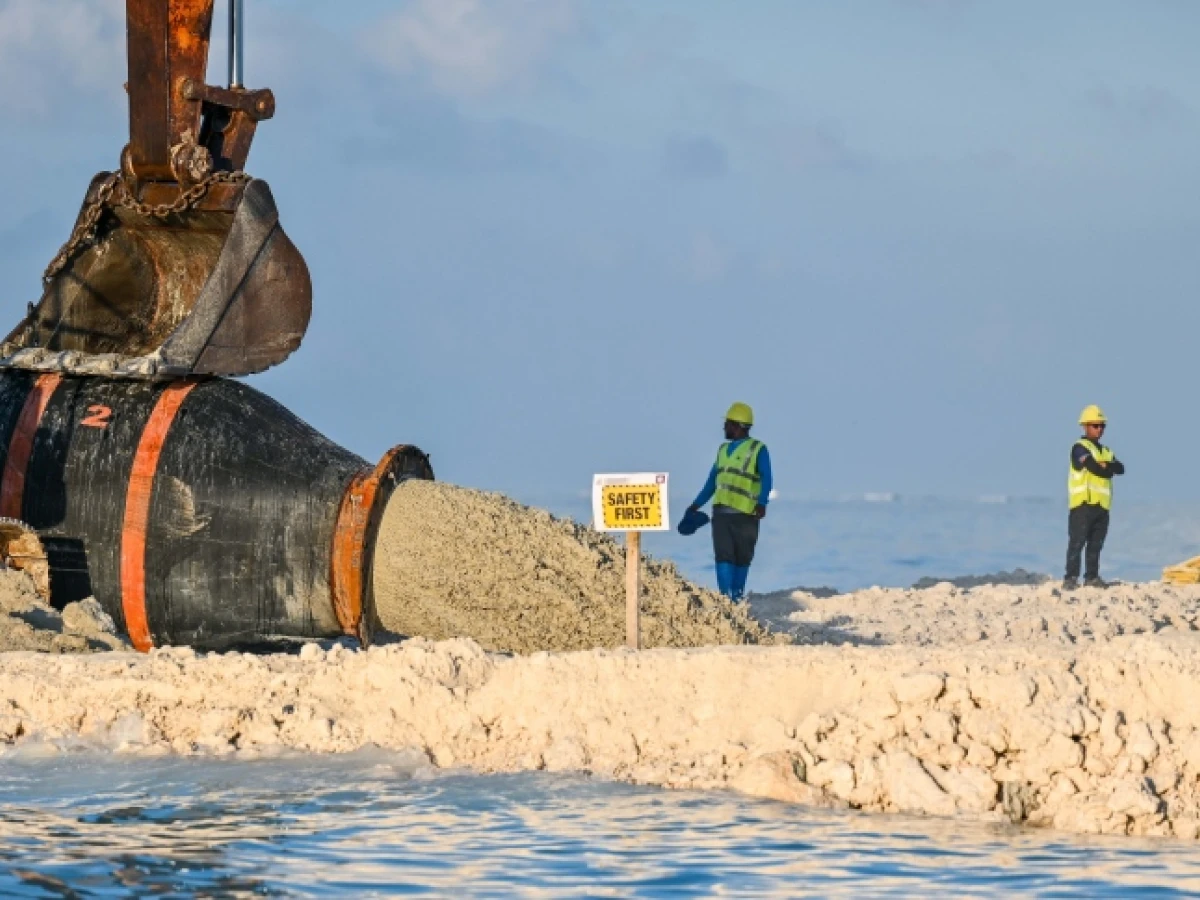
China-funded agricultural project relocated to Fushi Dhiggaru
The decision to relocate the project to the Fushi Dhiggaru lagoon was driven by its need for a larger area than an island can provide.
Originally planned for the Uthuru Thila Falhu, a Chinese-funded initiative has been relocated to the Fushi Dhiggaru, where part of the area will be dredged to accommodate the project.
In June, key Maldivian organisations—including STO, MACL, MPL, MTCC, and HDC—signed a memorandum of understanding (MoU) with the Maldives Industrial Development Free Zone (MID) and China Harbour Engineering Company Limited to dredge 200 hectares of land for the project.
STO Managing Director Shimad Ibrahim confirmed in a recent interview with Atoll Times that the project had faced delays due to the lack of available land but is now moving forward with feasibility studies, environmental impact assessments, and planning in progress.
The decision to relocate the project to the Fushi Dhiggaru was driven by its need for a larger area than an island can provide. Its proximity to Malé also makes it an ideal location for agricultural production, as it ensures easier transportation of crops to other parts of the Maldives, particularly where demand is highest.
Shimad emphasised that the project will enable the Maldives to achieve greater self-sufficiency in food production. "We can save a lot of dollars that are going out. We have identified the products that are needed in Maldives and produced in Maldives. That goal will be greatly achieved," he said.
Under a Chinese government concessional financing agreement, the project will include:
-
Land reclamation and agricultural infrastructure development.
-
An agricultural industrial park.
-
Passenger and freight terminals.
-
A training centre for agricultural education.
-
A distribution centre for marketing agricultural products.
The Maldives currently spends a significant portion of its foreign exchange earnings on food imports, including $13 million annually on onions alone. This project aims to cut these costs by enabling local production of fruits, vegetables, and chicken eggs.
Shimad highlighted the use of advanced, technology-assisted farming techniques to grow crops domestically, reducing the need for imports. He also noted the project's focus on producing high-quality, organic chicken eggs.
“The white eggs we are bringing in now are not the best quality. Our goal is to produce the same quality eggs in the country and bring organic, good-quality eggs to the market at a cheaper price,” he explained.
While the project promises significant economic benefits, the decision to dredge the Fushi Dhiggaru lagoon has raised concerns about potential environmental impacts. These are being evaluated through ongoing assessments to ensure that the development aligns with sustainable practices.




